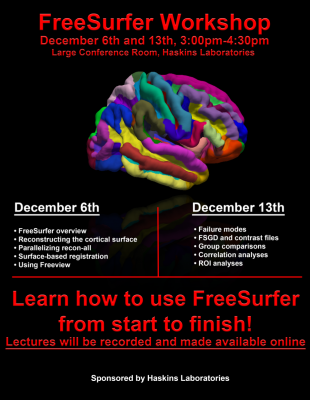Evelina Fedorenko, PhD
Assistant Professor
Harvard Medical School and Massachusetts General Hospital
Wednesday March 28, 2018
3:30-5:00pm, BOUS A106
The cognitive and neural architecture of the human language system
Brain regions that support high-level language processing are strikingly selective. This selectivity rules out a few prominent hypotheses — e.g., that left frontal lobe structures support language via domain-general executive processes, or that language relies on an abstract syntactic processing mechanism shared by other domains — but leaves open the nature of the exact computations that the language system supports. I will discuss three lines of work that, in tandem, suggest that the language network is fundamentally concerned with meaning, including both the processing of individual word meanings and semantic composition.
First, both lexical and combinatorial processing elicit robust responses throughout the fronto-temporal language network (e.g., Fedorenko et al., 2010; Blank et al., 2016). Further, some language regions show stronger responses to lexico-semantic processing and represent lexico-semantic information more robustly than structural information (Fedorenko et al., 2012), but no regions show the opposite pattern. In recent work (Mollica et al., in prep.), we further found that stimuli that are not well-formed but interpretable elicit as strong a response as intact sentences, in line with current sentence comprehension models whereby our interpretation mechanisms are robust to signal corruption (e.g., Levy et al., 2009; Gibson et al., 2013).
Second, intracranial recordings from the surface of the human brain show that neural activity, indexed by gamma power, increases monotonically over the course of a sentence across the language system (Fedorenko et al., 2016). Having ruled out a number of alternative explanations of this effect in terms of generic attention, working memory, and cognitive load, we argue that the most likely explanation is that this response increase reflects the increasing complexity of the evolving representation of the sentence meaning and is thus a candidate neural marker of complex meaning construction.
And third, we have recently developed a new approach for decoding linguistic meanings from the brain (Pereira et al., in press), based on a procedure for broadly sampling a semantic space constructed from massive text corpora. After the system was trained on imaging data of individual concepts, it could decode sentences from a wide variety of topics. These decoded representations were sufficiently detailed to distinguish even semantically similar sentences. Thus, we established the viability of using distributed semantic representations to probe meaning representations in the brain, laying a foundation for future development and evaluation of precise hypotheses about how concepts are represented and combined.
We encourage members of our MRI community, including students, to schedule a meeting; please email Inge-marie.eigsti@uconn.edu with your availability.
